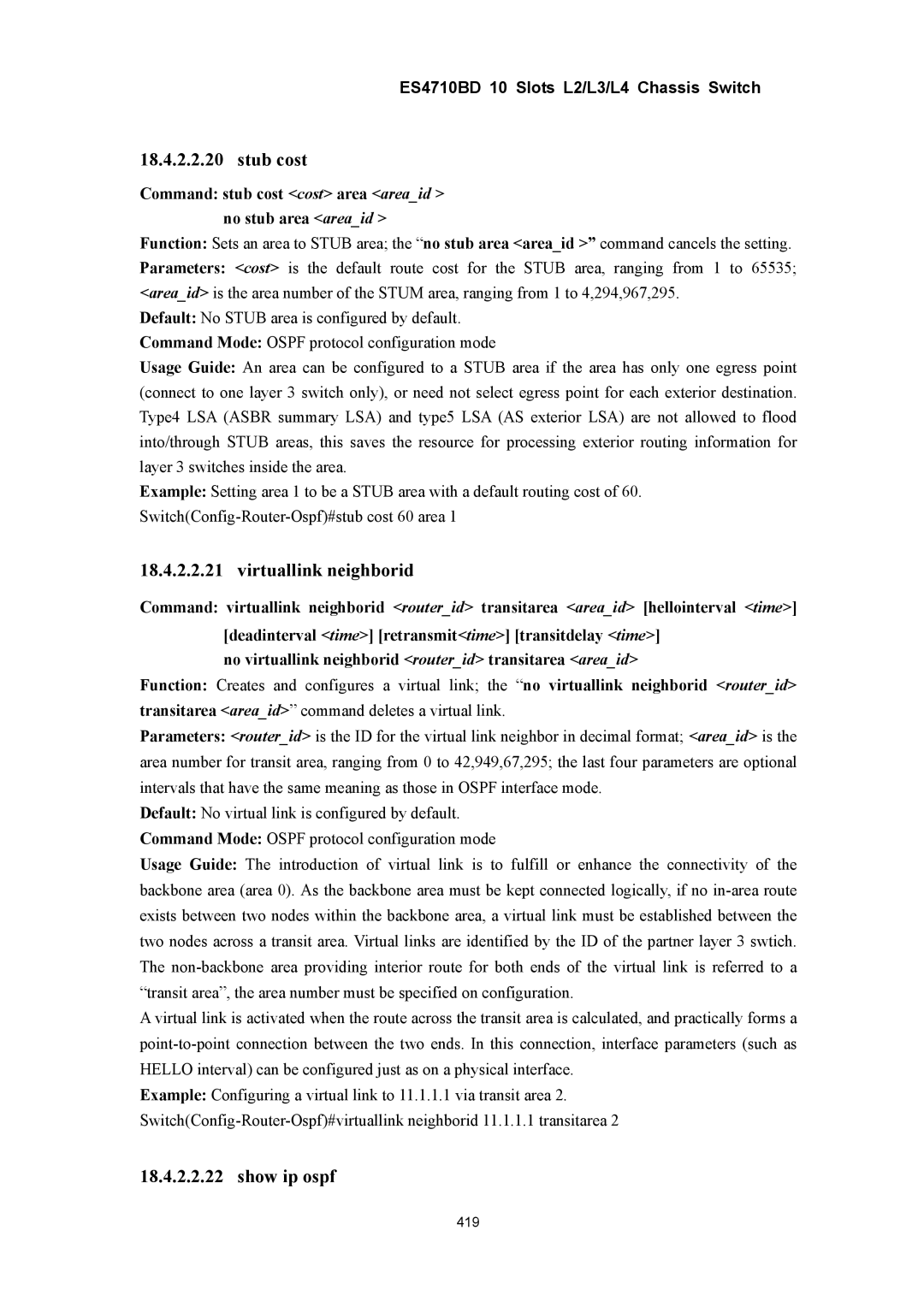ES4710BD 10 Slots L2/L3/L4 Chassis Switch
18.4.2.2.20 stub cost
Command: stub cost <cost> area <area_id > no stub area <area_id >
Function: Sets an area to STUB area; the “no stub area <area_id >” command cancels the setting.
Parameters: <cost> is the default route cost for the STUB area, ranging from 1 to 65535; <area_id> is the area number of the STUM area, ranging from 1 to 4,294,967,295.
Default: No STUB area is configured by default.
Command Mode: OSPF protocol configuration mode
Usage Guide: An area can be configured to a STUB area if the area has only one egress point (connect to one layer 3 switch only), or need not select egress point for each exterior destination. Type4 LSA (ASBR summary LSA) and type5 LSA (AS exterior LSA) are not allowed to flood into/through STUB areas, this saves the resource for processing exterior routing information for layer 3 switches inside the area.
Example: Setting area 1 to be a STUB area with a default routing cost of 60.
18.4.2.2.21 virtuallink neighborid
Command: virtuallink neighborid <router_id> transitarea <area_id> [hellointerval <time>] [deadinterval <time>] [retransmit<time>] [transitdelay <time>]
no virtuallink neighborid <router_id> transitarea <area_id>
Function: Creates and configures a virtual link; the “no virtuallink neighborid <router_id> transitarea <area_id>” command deletes a virtual link.
Parameters: <router_id> is the ID for the virtual link neighbor in decimal format; <area_id> is the area number for transit area, ranging from 0 to 42,949,67,295; the last four parameters are optional intervals that have the same meaning as those in OSPF interface mode.
Default: No virtual link is configured by default.
Command Mode: OSPF protocol configuration mode
Usage Guide: The introduction of virtual link is to fulfill or enhance the connectivity of the backbone area (area 0). As the backbone area must be kept connected logically, if no
A virtual link is activated when the route across the transit area is calculated, and practically forms a
Example: Configuring a virtual link to 11.1.1.1 via transit area 2.
18.4.2.2.22 show ip ospf
419
